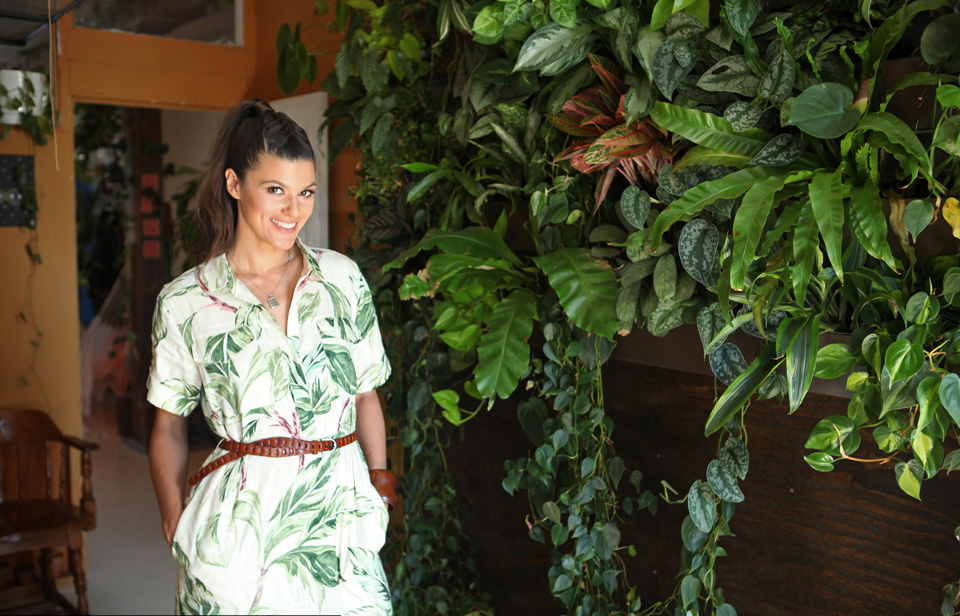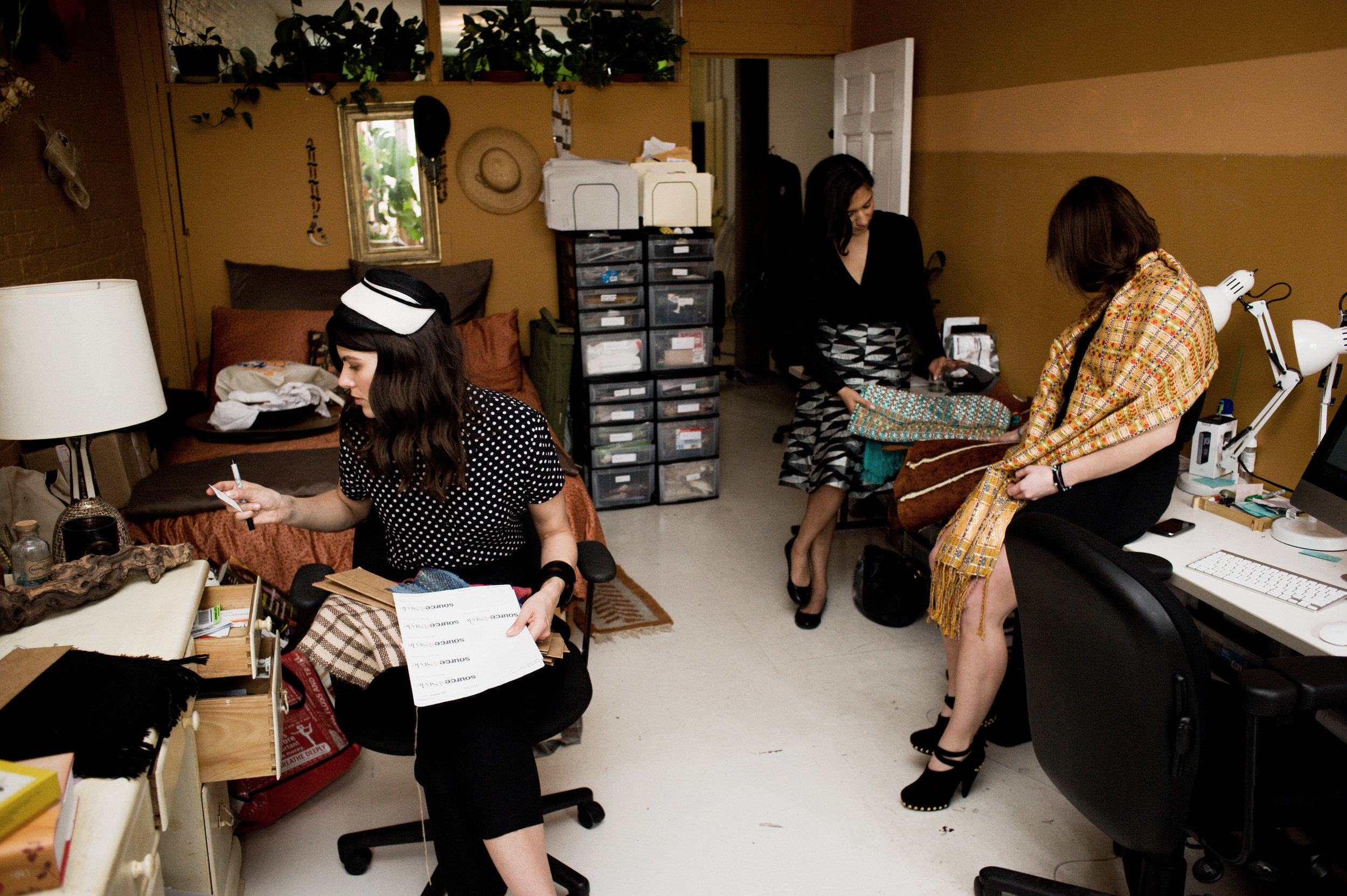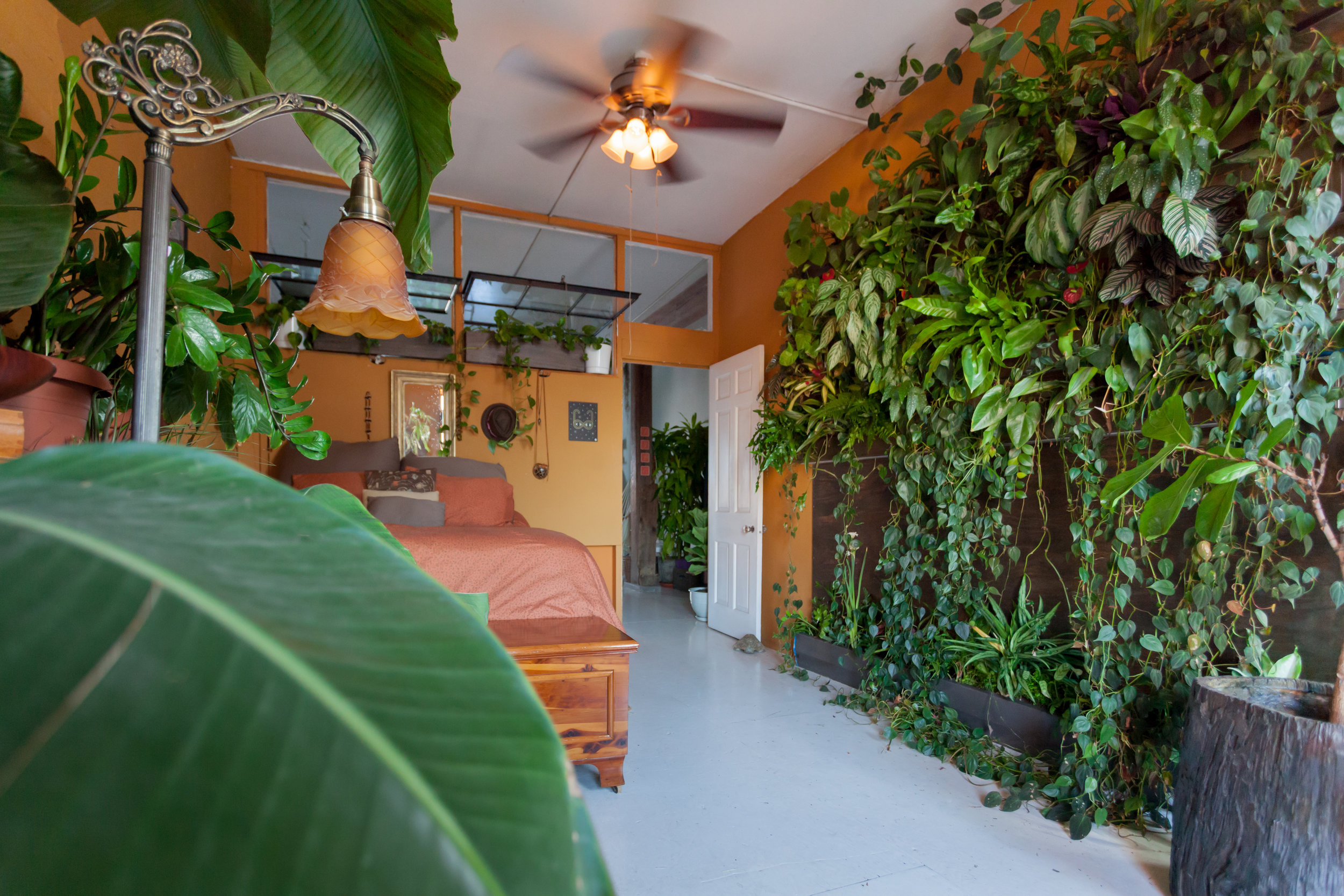It's been over four years since the vertical garden in my bedroom was first installed. I remember it well, perhaps because it was captured on video, but also because like most of my larger DIY projects, it symbolized a big change in my life.
I had always dreamt of having a vertical garden in my home, partially inspired by Patrick Blanc's orchid installation at the Botanical Gardens that I stood in awe by back in 2012. At the time I was mulling over verdant walls, I had around 140 plants and over 60 species in my 1200-square foot apartment (about 1/4th of what I have today). The horizontal space in my home was getting crowded. The delicate, ladder-like growth of my sweet-scented jasmine, the grand embrace of my sprawling large-leaved fig, and the verdant Rapunzel-like growth of my Devil's ivy were just some of that plants that climbed, crept and catapulted their leafy arms toward every window.
When that happens, you begin to daydream about what your walls would look like, covered in green. I would gaze at my barren walls at night, just before shutting my eyes, and a mirage of flora would appear.
Right when I was considering building out a vertical garden, something happened. My first start-up, a sustainable materials marketplace, was in desperate need of an office space. It was around the time rent started to skyrocket in Williamsburg (Brooklyn), and the landlords where Source4Style was based, threatened to confiscate and kick out everyone in 48 hours. The office was around 12 blocks away, so I calmly told my business partner to move everything right into the bedroom.
Before there was a green wall, there was a start-up brimming with handmade textiles from over 30 countries housed in this room. Photo: Shawn Brackbill for Source4Style
By the time I got home from San Francisco, where I had been, the place was transformed. The wall where the imagined plant wall would be was now desk space, piled high with textile swatches from all over the world. File cabinets full of cottons, khadis and silks lined the closet. It's not precisely what I had imagined, so the hope for a green wall would have to wait, like a seed hibernating beneath the permafrost.
It took 18 months for Source4Style to find a new home. Venture money was raised, my business partner would gracefully and graciously step up to run the company, and pretty soon it was just me and my wall again. The permafrost had finally melted.
I often say that the number of plants I bring into my home is directly proportional to the time I spend away from the outdoors. When you're running a start-up, or just simply become embedded in city life, you find yourself spending less and less time in the woods, or near a lake, or on a secluded strip of beach somewhere. In a way, growing plants indoors, is an opportunity for you to find that nature again—even if its somewhat contrived.
The time had come to seriously consider planning out a green wall. But where to start? I excitedly told my downstairs neighbor what I was planning to do. He looked at me seriously, the curmudgeon that he is, and instead of being enthusiastic, he warned me that he'd be quite enraged if "even a drop of water fell on his head." Understandable. But I was bummed he didn't share in my excitement. Regardless, his dour demeanor didn't dampen my desires.
After doing some research, I had heard some rumbles that many of the indoor vertical gardens didn’t survive longer than a few months of being installed. Issues with water and nutrient distribution across the vertical space, inappropriate plant species, and inefficient light are just some of the issues that can cause “green walls” or “vertical gardens” to require constant upkeep. I didn’t want to build something that was destined for failure, so I enlisted the help of my dear friend Kyle, one of the most prominent developers in the tristate area, to help find a team that could advise, oversee and build a perfect system for my already overgrown place. If I were to do this, I would want to do this right. For my sake—and the sake of my downstairs neighbor!
“I often say that the number of plants I bring into my home is directly proportional to the time I spend away from the outdoors. When you’re running a start-up, or just simply become embedded in city life, you find yourself spending less and less time in the woods, or near a lake, or on a secluded strip of beach somewhere. In a way, growing plants indoors, is an opportunity for you to find that nature again—even if its somewhat contrived.”
One of his contractors had suggested Kari and Edwin from Mingo Design. They were experimenting with a new residential unit that was not hydroponic, which largely were the proposed vertical walls at that time. Instead, they suggested a semi-mobile wall equipped with a state-of-the-art sub-irrigation system, which wasn't being employed in traditional green wall systems.
Since I already had so many plants, Mingo suggested that an automatic sub-irrigation system be installed. This was for a few different reasons. First, gravity-fed watering doesn't evenly distribute water to plants, so it often generously waters foliage at top while plants on the bottom dry out. Second, some gravity-fed watering systems can be sloppy, and if any water happens to spill out, my hardwood floors (and my neighbor below), would certainly not be pleased. Third, sub-irrigation systems are often superior to gravity-fed systems because it waters plants below the roots, so plants can “sip” water when needed instead of being force-fed water from the top. Finally, the sub-irrigation system could be put on an automatic watering system — and seeing that I already had so many plants to care for on my hands, a little help watering this new crop of 80 plants would be much appreciated.
When in NYC, you have to be creative with your space. After filling up just about every horizontal surface with flora, I turned to the wall for inspiration. Kari and Edwin from Mingo Designs came over to create a most wonderful indoor vertical garden - equipped with sub-irrigation system and 15 different species of plants - from philodendrons to sword ferns. Filmed by: Ben Bentsman
Though my building is old, luckily it was built correctly, and had studs every 16 inches along the wall. This gave the contractors an opportunity to reinforce my wall to hold the weight of the vertical garden. Originally they had suggested Densglass, an architecturally-specified fiberglass mat gypsum sheathing, which helps to protect against moisture damage, but after looking at the wall and reviewing the plant wall specifications, they just opted for some plywood.
Kari and Edwin began to install the gutters, for which the plants would sit in, in wooly pockets and above a semi-permeable membrane, so water could easily be soaked up or leached down, ensuring that plant roots wouldn't be sitting in the water. It really is quite the ingenious system! Additionally, water piping was installed from the base of my kitchen sink, up through the ceiling, through the bedroom wall and into each of the five containers of the green wall, so that water could automatically turn on (if I wanted it to) once the water fell below the root zone.
Since the time of installing the green wall, I stained the raw wood, and my father and I forged another gutter and connected it to the bottom of the reinforced wall. What's nice about the system is that you can take away or add more units, so it makes it more mobile. And I could also take it with me, (if god forbid), I ever have to move from my house. Additionally, it's very much like a living art piece. The plants, like in any place of the home, grown and senesce, so it does require maintenance. Every few months, I tend to remove a couple plants that have outgrown their home and let the other plants stretch out a bit. Otherwise the plants get too crowded and will block each other's sunlight.
The greatest compliment I got almost immediately after installing came from Faith Kates, my agent at NEXT Models. She saw one of my videos and remarked, “I didn’t know you had an outdoor space!” Ah, what joy I got in that statement. A few years later, I was on a Skype call at home with a business associate, Erika. I had been sitting at my kitchen table and the camera was pointing back behind me.
A look into the green wall (to the right room) from the kitchen table. Photo: Summer Rayne Oakes
"Are you on vacation Summer?" she asked.
"No," I responded. "I'm working from home right now."
"But, there's like a hammock behind you," she remarked incredulously. "And a whole forest. It's like you're in Puerto Rico!"
When I work from home, I do feel as if I'm on vacation. Though having a green wall hasn’t quite replaced the need for my time outdoors, the vertical garden has definitely transformed the energy (and humidity!) of my living space, and has provided inspiration for many a guest to bring more plants into their homes. 🌿
A peek at the vertical garden growing in my bedroom. Look at how different the room looks after having very little plants! Photo: Summer Rayne Oakes
Around 2015, my father and I forged the bottom piece from an old gutter and created a new plant trough. This is the only unit that is not sub-irrigated. Photo: Summer Rayne Oakes






